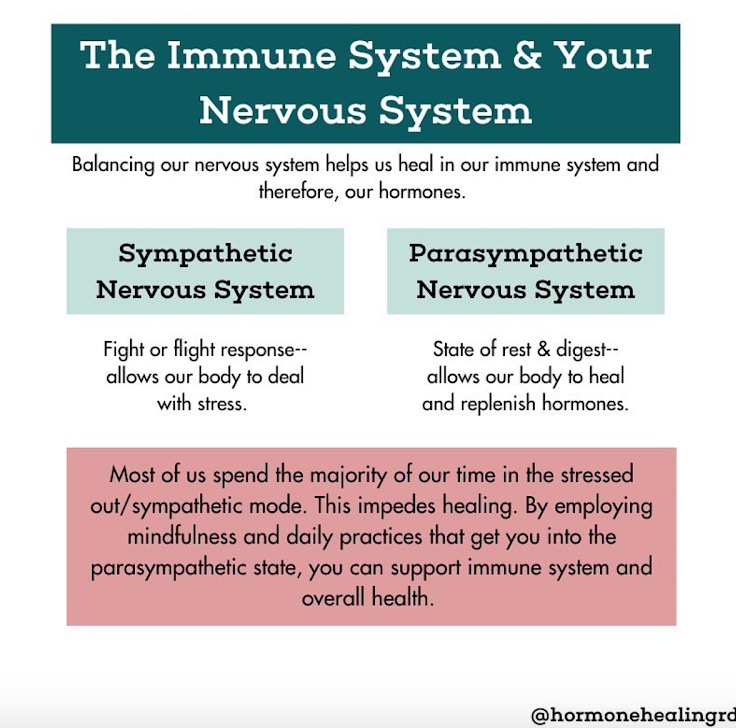Diseases like diabetes get over $1 billion a year in funding, while endometriosis costs just as much to manage, but we have an underwhelming amount of scientific research. That doesn’t even account for the long term cost, which needs to be studied further as a chronic condition.
Currently, 11% of women have endometriosis; more diagnoses are likely with improvement in diagnostic capabilities. Endometriosis once thought to be a hormonal condition, is actually an immune condition. What this means is the state of our immune system plays a considerable role in symptoms. Although hormones absolutely impact endometriosis symptoms, focusing on that alone would leave a massive piece of the puzzle unsolved. Approximately 80% of our immune system lives in our gut. If we can support function and overall gut health, we can support the immune system. When creating a plan of care for endometriosis, it is critical to consider supporting our immune system, gut health, and digestive function.
Areas That Impact Gut Health:
I cannot talk about endometriosis awareness without mentioning how this disease impacts women of color. I have seen clients that struggled with debilitating period pain for years and didn’t get diagnosed until they got surgery for fibroids or struggled with infertility. Maisha Z. Johnson has a great article on Healthline that digs into each of the 4 points below in greater detail.

When I first read this statement, my mind was blown. I knew that feelings of anger and frustration could be stressful on the body, but I had no idea how big of an impact they had, especially on the immune system. For this reason, I recommend focusing on a positive emotion when doing meditation and/or breathing exercises. If that positive emotion can support your immune system, it can also help balance your nervous system and reduce stress.
It can be that simple. Start identifying emotions that deplete you versus emotions that renew you. Make a note and pay attention to how often you are feeling both. I use the HeartMath technique and monitor this with clients and myself. It’s not 100% necessary, but I find it helpful to see the nervous system’s data right in front of me.
How does the immune system impact our nervous system?
When we are in a stressed-out state, the body does not prioritize healing. It’s smart–it wants to keep you alive, so it prioritizes the stress response. Excessive stress leads to inflammation and suppression of specific immune functions. We make fewer immune cells and have a reduced ability to fight off infections. Getting into the relaxed state more with deep breathing, meditation, walking, etc. can help activate that rested stated and optimize your immune system. We can ALL benefit from supporting our immune system by reducing stress.

What activities can you do to help balance your nervous system?
Now that we’ve dove into how our nervous system impacts our immune system and healing on a hormonal level, let’s dig into tactics you can start regularly using to support a healthy nervous and immune system.
|
Things you genuinely enjoy: |
Things that can be hard but effective: |
|
|
|
|
|
|
|
|
|
|
| |
|
The goal of these habits is to get your body into a relaxed state and activate the parasympathetic nervous system. A state in which we heal, and the body focuses on hormone production. These are aspects of our nervous system that we cannot control, but there’s a lot we can.
We can all benefit from adding in some intentional relaxation time to our days, but this is especially helpful for those struggling with hormone imbalances and endometriosis. With all that is going on in the world right, I think we could all use some deep nose breathing. If you want more information on these topics then sign up for my newsletter the Feminine Periodical.
Photo by Sydney Sims on Unsplash
